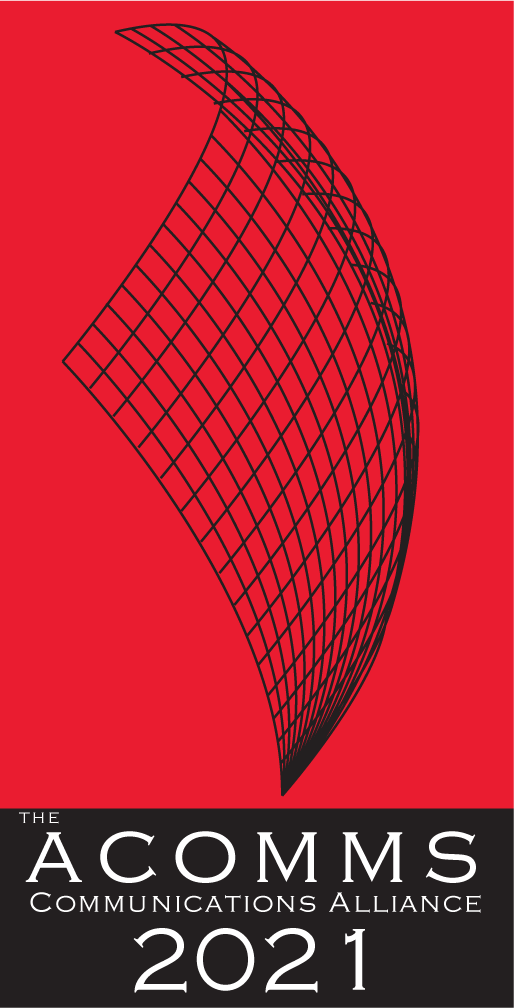
Issue No 4: 22 February 2021
| Events |  |
| ||
|
|  |
Draft Online Safety Act may be Unworkable: CA
"Reproduced with permission from CommsDay"
The proposed new Online Safety Act is far too broad in scope, places overly onerous restrictions on service providers and contains many aspects that may be unworkable, according to Communications Alliance.
The industry body's submission to the consultation on the draft legislation also argues that the bill as it stands lacks adequate oversight mechanisms and threatens to undermine freedom of expression.
The draft legislation would grant the eSafety Commissioner sweeping new powers to order ISPs, web hosts and online service providers to delete content, block access to harmful material and even discontinue services in Australia.
Communications Alliance expressed concern over the fact that SMS and MMS have been included in the definition of “relevant electronic service” in the exposure draft of the legislation.
The submission questioned: “how the authors of the draft legislation envisage that the removal of material from SMS/MMS communications would be facilitated,” noting that it is not appropriate – or even allowed under current legislation – for service providers to review and identify messaging content at the granular level required to remove individual SMS.
“Equally concerning is the proposed broadening of scope to include ‘designated internet services’ which basically includes any website,” the submission stated, adding that hosting services are now also included in the scope of services covered by the draft legislation.
It is unrealistic to expect all websites that allow users to post comments to respond to take-down requests within the 24 hour timeframe specified in the legislation, Communications Alliance argued.
Likewise, while larger ISPs would have the capability to respond to content blocking requests within 24 hours, many smaller providers may struggle to do so over weekends or holiday periods, the submission added.
CYBER ABUSE: Communications Alliance also expressed concern with the definition of cyber abuse material included in the list of material deemed eligible for takedown notices.
The proposed definition “sets the bar too low and the scope too wide” by including material which an ordinary reasonable person would regard as being “offensive”, the submission argued.
Considering how subjective offensiveness can be, the definition “does not strike an appropriate balance between guaranteeing freedom of expression and appropriately limiting online harms,” it added.
Similarly, the definition of abhorrent violent material in the draft legislation differs from that used in the Criminal Code Amendment (Sharing of Abhorrent Violent Material) Act, broadening the scope to include content that ‘promotes’, ‘incites’ or instructs’ in abhorrent violent conduct.
It also lacks the requirement for the material to have been produced by the perpetrator or accomplice of the violent conduct, meaning content filmed and shared by bystanders – including original reporting on war crimes or police killings - could fall foul of the amendment.
The draft legislation also proposes to give the eSafety Commissioner the ability to demand the cessation of entire services in Australia. The Commissioner would be able to issue deletion notices to app stores and search engines, or apply for a Federal Court order that a service cease being provided in Australia.
Communications Alliance noted that while the powers are justified as “last resort” measures, the legislation would enable these notices to be issued after just two instances of a service’s non-compliance. The Alliance is recommending the text be changed to require systemic and wilful non-compliance by the services and for all alternative avenues to be exhausted.
On a similar note, the submission expresses concern that the only avenue for appeal available to service providers proposed in the legislation would be through the Administrative Appeals Tribunal, and that there is no requirement to consider whether an order is being appealed before penalties are issued.
TIME FRAME TOO SHORT: Communications Alliance's submission also objects to the proposed time frame of six months for the development of new industry codes to support the legislation, noting that it would be “unrealistic or impossible” to achieve this tight deadline.
Communications Alliance is requesting the Commissioner give the relevant industry association at least 6 months to first develop a draft industry code before the Commissioner can move to create a standard – and only if the draft code does not meet community standards.
The Alliance is also asking for the time frame for registration of industry codes to be removed from the act, and replaced with a legislative instrument requesting the development of an industry code within a time frame that should be no less than 12 months. - Dylan Bushell-Embling.
Comms Alliance Urges Greater Regulation for ‘Debt Management’ Services
"Reproduced with permission from CommsDay"
Communications Alliance has told the Federal Government it supports a proposal to crack down on predatory debt management firms by requiring them to hold an Australian credit licence.
Such a move would have benefits both for telcos and consumers, the group told a Treasury consultation on the move, which was advanced last year as part of a broader suite of changes to consumer credit laws.
CA said that debt management firms have contacted RSPs either directly or through the Telecommunications Industry Ombudsman to request removals of legitimate credit enquiries made when consumers have sought to purchase a service.
“These contacts are often extremely aggressive towards RSP representatives and take up significant customer service resources,” CA said.
“RSPs have also experienced problems with some firms’ behaviours on other related topics, such as inappropriately requesting the removal of defaults which were correctly added to the customer’s file.”
The experience across the telco sector has been that some such firms: “approach customers or advertise their services based on inaccurate representations about the impact that credit enquiries at point of sale have on their accounts (and thus what positive impacting removing the enquiries will have) and the possibility of removing legitimate – and in fact legally required – enquiries from a file,” CA said.
“This often creates false hopes for customers about the prospects of accessing future credit or financial products, such as a mortgage. Our members have seen the emotional impact on consumers who hold false hopes while watching these cases move between the firm, the RSP, the Ombudsman, and others.”
The TIO provides free dispute resolution services, including relating to credit enquiries, but consumers are not always informed by debt management firms that this is an option.
Read the submission here.
Feedback | Contact Tel: (61) 2 9959 9111 |